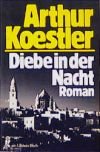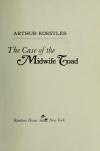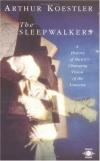
Arthur Koestler's extraordinary history of humanity's changing vision of the universe In this masterly synthesis, Arthur Koestler cuts through the sterile distinction between 'sciences' and 'humanities' to bring to life the whole history of cosmology from the Babylonians to Newton. He shows how the tragic split …
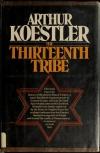
The Thirteenth Tribe is a 1976 book by Arthur Koestler, in which he advances the thesis that Ashkenazi Jews are not descended from the historical Israelites of antiquity, but from Khazars, a Turkic people. Koestler's hypothesis is that the Khazars migrated westwards into Eastern Europe in the 12th and 13th centuries …
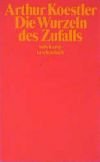
The Roots of Coincidence is a 1972 book by Arthur Koestler, an introduction to theories of parapsychology, including extrasensory perception and psychokinesis. Koestler postulates links between modern physics, their interaction with time and paranormal phenomena. It is influenced by Carl Jung's concept of …
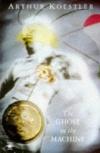
The Ghost in the Machine is a 1967 book about philosophical psychology by Arthur Koestler. The title is a phrase coined by the Oxford philosopher Gilbert Ryle to describe the Cartesian dualist account of the mind–body relationship. Koestler shares with Ryle the view that the mind of a person is not an independent …
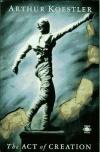
The Act of Creation is a 1964 book by Arthur Koestler. It is a study of the processes of discovery, invention, imagination and creativity in humour, science, and the arts. It lays out Koestler's attempt to develop an elaborate general theory of human creativity. From describing and comparing many different examples of …

 English
English Español
Español Deutsch
Deutsch
